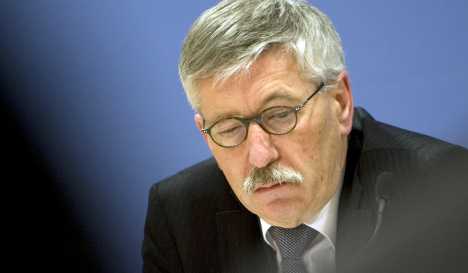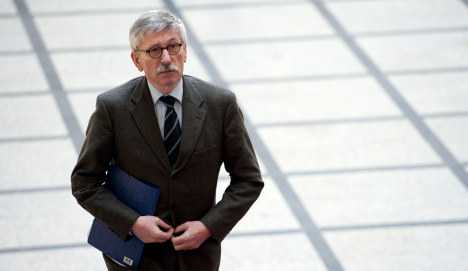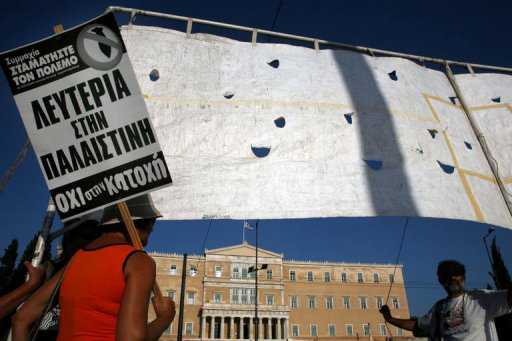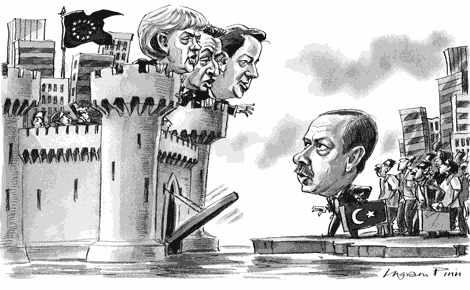 Bundesbank official Thilo Sarrazin faced increasing pressure from across the political spectrum due to his controversial views on Muslims and immigrants on Thursday, as calls grew for him to leave the Social Democrats (SPD) and his central bank post.
Bundesbank official Thilo Sarrazin faced increasing pressure from across the political spectrum due to his controversial views on Muslims and immigrants on Thursday, as calls grew for him to leave the Social Democrats (SPD) and his central bank post.
More politicians joined in the chorus of outrage over Sarrazin’s comments regarding foreigners in a new book he has written and which are widely seen as inflammatory and xenophobic.
In an excerpt from his book published by daily Bild on Thursday, Sarrazin said there were “good grounds” for reservations against Muslims across Europe.
“There is no other religion with such a flowing transition to violence, dictatorship, and terrorism,” he claimed, before making the equally provocative assertion that Muslim immigrants were “associated with taking advantage of social welfare state and criminality.”
Along with members of the Greens and the Left party, politicians from the conservative Christian Democrats are now calling for him to give up his seat on the central bank’s board. Members of his own party said Sarrazin was “abusing” the SPD’s name.
“Those who pour blanket scorn on individual groups are playing a perfidious game with fears and prejudices,” said SPD General Secretary Andrea Nahles on Thursday. “That has nothing in common with the values and convictions of the SPD.”
Justice Minister Sabine Leutheusser-Schnarrenberger of the pro-business FDP party called Sarrazin’s theories “confused and unbearable.”
“Germany is a country of immigration and we can be proud of the liberal values and openness of our society,” she said.
The head of the Social Democrats in Berlin, Michael Müller, said it was possible the party would take new steps to kick the 65-year-old former Berlin’s finance senator out of the party. Sarrazin survived a previous attempt this year to revoke his party membership for previous controversial comments.
Sarrazin’s new book, called Deutschland schafft sich ab – Wie wir unser Land aufs Spiel setzen, or “Abolishing Germany – How we’re putting our country in jeopardy,” is due to be released on Monday. In the book, Sarrazin warns that Germans could become “strangers in their own country” because of integration. He plans to begin a book tour beginning next week.
The Green party has said it wants to begin a parliamentary procedure in which the Bundesbank and the government recommend Sarrazin be dismissed from his central bank position, a motion which would then be accepted by Germany’s president. The Left party has also called on Bundesbank directors to distance themselves from their controversial colleague.
“A top official who tries to agitate people is unacceptable,” said Left party head Gesine Lötzsch.
This is not the first time Sarrazin has sparked controversy with his views. In September 2009 he made anti-immigrant remarks against Arabs and Turks in an interview with Lettre International magazine.
He claimed that “a great many Arabs and Turks in [Berlin], whose numbers have grown because of the wrong policies, have no productive function other than as fruit and vegetable grocers.”
Though he apologised for those remarks, Sarrazin refused to step down from the Bundesbank’s board despite pressure to do so. He was however symbolically punished when the institution stripped him of some responsibilities after the incident, which caused widespread outrage.
“With Thilo Sarrazin, it’s just a continual offence,” said Green party parliamentary group leader Renate Künast on Thursday.
, 26 Aug 10







